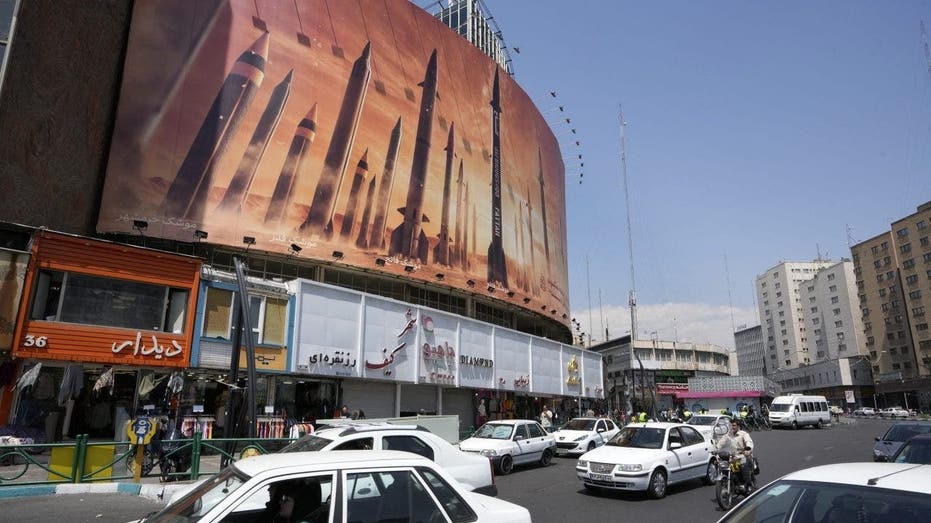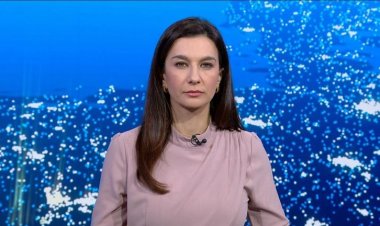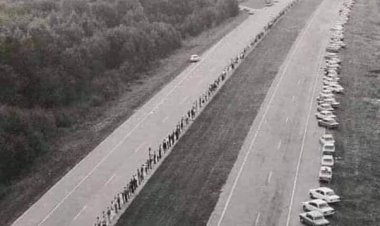Radical Iranian province hit by Israel highlights regime's weaknesses
Israel seeks to destabilize and degrade Iran’s cherished center of missile and nuclear arms production. Critics argue Israel needs to inflict severe damage on Iran’s regime.

JERUSALEM - Just a week ago, some residents of Iran’s central province of Isfahan - a nuclear weapon and missile production hub of the Islamic Republic - cheered the Iranian rockets fired into Israel.
In the early-morning hours of Friday, the Isfahan authorities were jolted by Israeli strikes that triggered their air defense systems in the cities of Isfahan and Tabriz after three explosions went off near an important military airbase close to Isfahan. It is unclear how much damage Israel’s strikes inflicted. Iran’s regime reported no casualties.
Potkin Azarmehr, a British-Iranian expert on Iran, told Fox News Digital, "What my sources are saying is that there is no damage to the airbase, but Israel proved it can jam Iran’s air defense and bypass it to the extent that they didn’t even manage to sound the alarm despite Isfahan being in the heart of Iranian territory."
He continued that "Isfahan is the epicenter of Iran’s air defense. If they couldn’t detect the attack, serious questions about the reliability of Iran’s air defense must be asked."
Azarmehr noted, "When the Pakistan Air Force retaliated after Iran missile attack, there was no air defense."
Isfahan is a top-priority strike location for Israeli forces, because the area is one of the central features of the regime’s illicit atomic weapons program. It is where the powerful Shahab medium-range missiles are made. Isfahan was the testing ground back in late October for the country's missile system, which proved capable of reaching Israel last week.
Israeli strikes against Iran’s regime are typically shrouded in ambiguity to avoid any fingerprints on the missions and to leave Tehran’s rulers guessing.
In January, 2023, Israeli drone strikes allegedly hit a weapons factory inside Isfahan. The drone attack last year was said to be executed by Israel’s foreign intelligence service, Mossad.
The Jerusalem Post reported that Friday's response was meant to be internalized as "An eye for an eye, a tooth for a tooth. Israel retaliated where they were attacked."
Isfahan is also a hotbed of antisemitism and Holocaust denial. At an April Al-Quds day demonstration, the last Friday of Ramadan, Iran promoted the destruction of Israel. The Imam of Isfahan, Ayatollah Yousef Tabatabainejad, declared, "It is our obligation to support the oppressed Muslims who have been oppressed, and we hope that, with divine providence in this path of resistance, we will be able to wipe the Zionist regime off the face of the earth."
In 2016, the Islamic Association of the University of Isfahan announced a cartoon contest that aims to mock and deny the Holocaust.
Sheina Vojoudi, an associate fellow at the Gold Institute for International Strategy, told Fox News Digital that "Isfahan is of great strategic importance in Iran. There are military and nuclear bases in Isfahan, and it shows how the regime is concentrated in this city and the rockets that were fired at Israel were also fired from one of the bases in Isfahan."
Vojoudi, an Iranian dissident who opposes the Islamic Republic’s government, added that the "attack on Isfahan means that this city is one of the main points where the regime can pose a threat to Israel and, of course, to the Iranian people because of the intense activities of Iran’s Islamic Revolutionary Guard Corps. The regime's nuclear activities have almost ruined the lives of the people of Isfahan and increased the rate of cancer in Isfahan."
While the U.S. and allies seem to be content with Israel's reaction, other experts say an opportunity has been wasted.
"This is a missed opportunity. Israel needed to impose a serious cost on Iran to restore deterrence. I worry that this pin-prick reprisal will instead teach Iran that it can get away with large-scale attacks on U.S. partners without serious consequences," said Matthew Kroenig, vice president and senior director of the Atlantic Council’s Scowcroft Center for Strategy and Security and the Council’s Director of Studies.






















